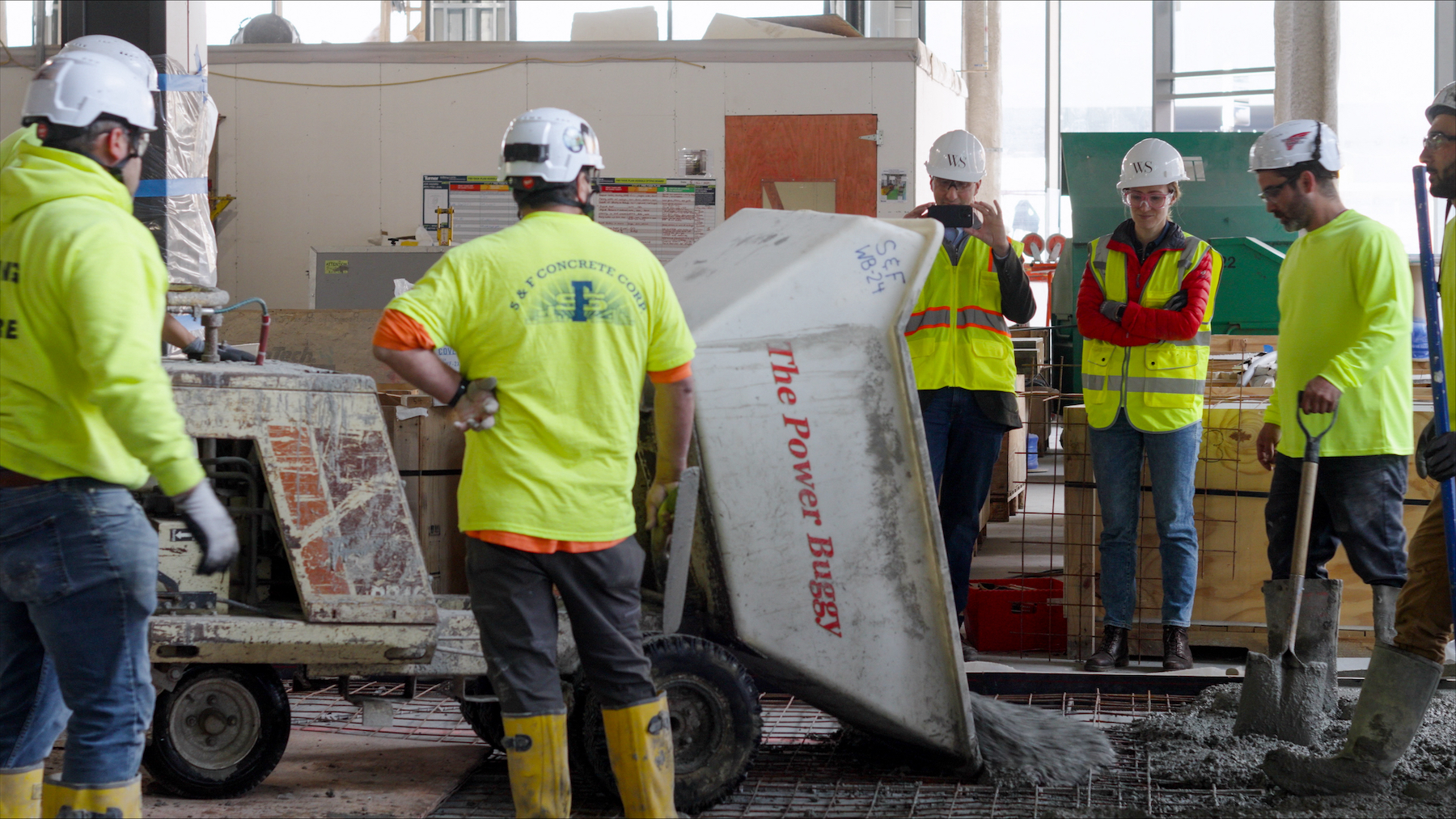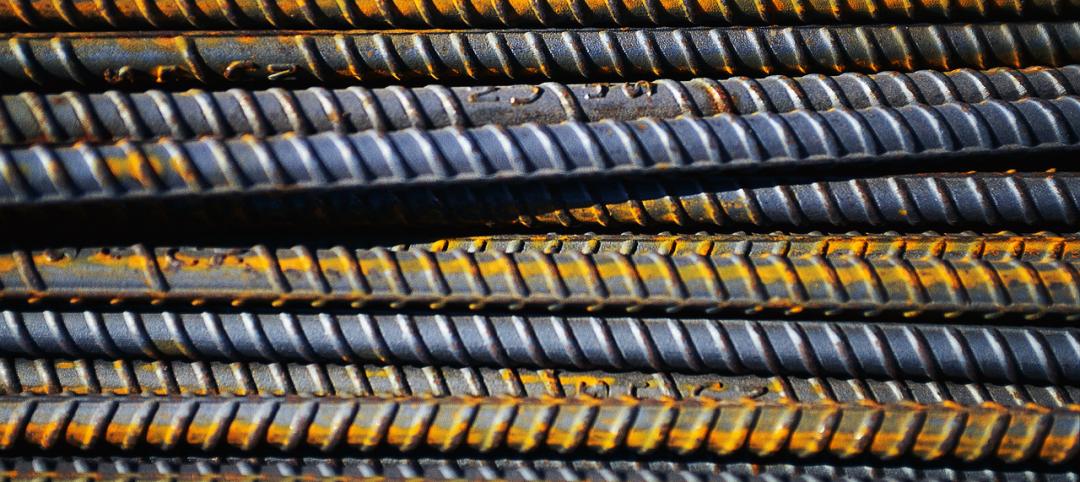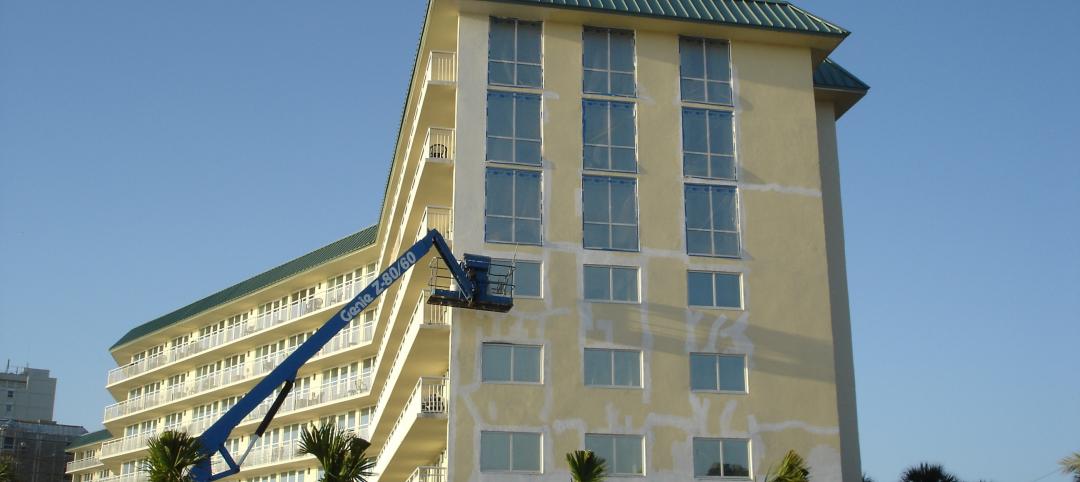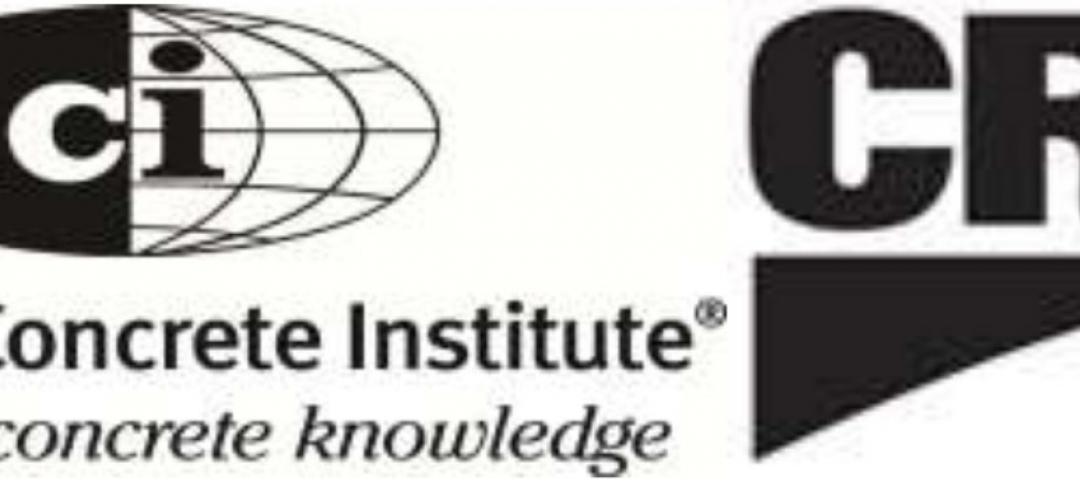Earlier this month, a 575-sf patch of concrete was poured as part of a public space known as the Paseo, inside One Boston Wharf Road, a 707,000-sf 17-story building in Boston’s Seaport district that is scheduled for completion later this year. Amazon will be the building’s sole tenant.
What makes this newsworthy, you ask? Well, for one thing, One Boston Wharf Road, developed by WS Development, will be Beantown’s largest Net Zero Carbon office building. Its goal is to reduce greenhouse gas emissions by more than 90 percent below code requirements and eliminate 5.1 million pounds of CO2 annually. (WS Development recently announced that it had purchased renewably generated electricity for all electric power used by its Seaport portfolio.)
Also see: AGC releases decarbonization playbook to help assess, track, reduce GHG emissions
The concrete installation represents the first commercial application of low-carbon cement manufactured by Sublime Systems, a business that the Massachusetts Institute of Technology spun out as an enterprise in 2010.
Production of cement currently accounts for 8 percent of global CO2 emissions, mostly caused by the intense temperatures required to make cement clinker from limestone, a common ingredient in concrete. Sublime Systems, which is based in Somerville, Mass., claims that its Sublime Cement, the product's marketing name, avoids traditional cement’s major emissions sources, limestone feedstock and fossil-fueled kilns, by applying electrochemistry to extract cementitious ingredients from non-carbonate materials, without degrading the properties that make concrete the most-used building material worldwide.
Sublime Systems’ technology makes ASTM C1157-compliant cement, a drop-in replacement for Portland Cement in concrete. The company, which was incorporated four years ago, has raised more than $140 million from tech investors, and cooperative agreements with several U.S. Department of Energy programs. The company’s pilot plant has a 250-ton annual production capacity, and Sublime Systems is developing a 30,000-ton capacity commercial facility that will open in Holyoke, Mass., in early 2026.
“We and Sublime share the same vision and mission,” said Yanni Tsipis, a Senior Vice President at WS Development and a lecturer at the MIT Center for Real Estate. “We have an opportunity to showcase the most forward—thinking low-carbon building technology on the planet in the public space, at the heart of the building. This partnership epitomizes the value of technology transfer from incubator to industry.”
Educating the public about lowering carbon
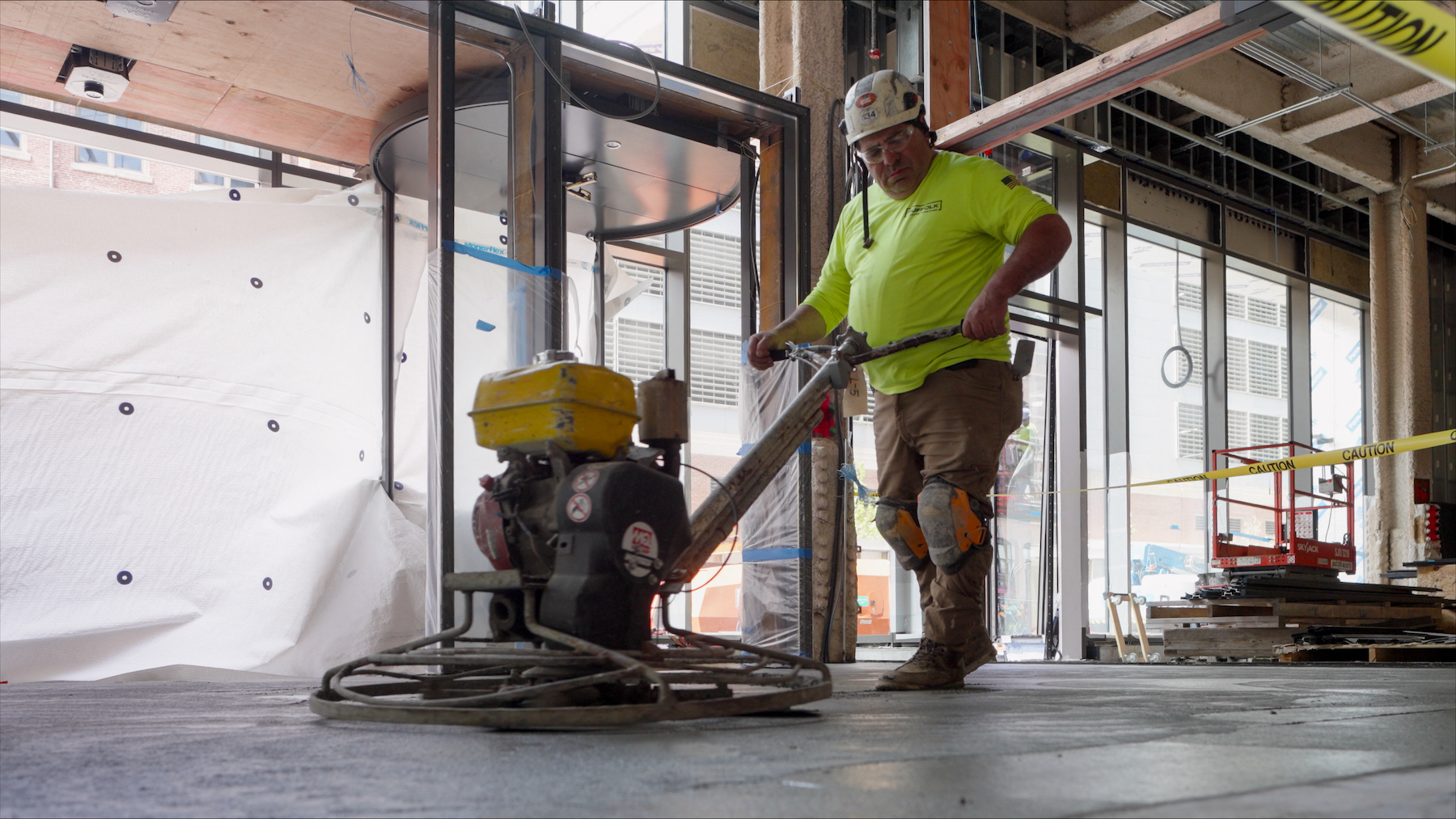
The floor of the Paseo, in which Sublime Cement is installed, will be marked with educational material explaining the significance of decarbonized cement in the battle against climate change. The Paseo will lead to a new 1.5-acre park called The Rocks at Harbor Way that will be the focal point of a one-third-mile promenade that connects to the water’s edge. (James Corner Field Operations came up with this concept for Harbor Way.) One Boston Wharf Road will feature 77,000 sf of retail space.
One Boston Wharf Road is adjacent to 11 Harbor Way, a 525,000-sf, 17-story office tower that WS Development completed in the spring of 2022.
Related Stories
| Dec 10, 2011
10 Great Solutions
The editors of Building Design+Construction present 10 “Great Solutions” that highlight innovative technology and products that can be used to address some of the many problems Building Teams face in their day-to-day work. Readers are encouraged to submit entries for Great Solutions; if we use yours, you’ll receive a $25 gift certificate. Look for more Great Solutions in 2012 at: www.bdcnetwork.com/greatsolutions/2012.
| Dec 10, 2011
Energy performance starts at the building envelope
Rainscreen system installed at the west building expansion of the University of Arizona’s Meinel Optical Sciences Center in Tucson, with its folded glass wall and copper-paneled, breathable cladding over precast concrete.
| Dec 2, 2011
What are you waiting for? BD+C's 2012 40 Under 40 nominations are due Friday, Jan. 20
Nominate a colleague, peer, or even yourself. Applications available here.
| Nov 22, 2011
New Green Matters Conference examines emerging issues in concrete and sustainability
High-interest topics will be covered in technical seminars, including infrared reflective coatings for heat island mitigation, innovative uses of concrete to provide cooling and stormwater management, environmental benefits of polished concrete, and advancements in functional resilience of architectural concrete.
| Nov 16, 2011
CRSI recommends return to inch-pound markings
The intention of this resolution is for all new rollings of reinforcing steel products to be marked with inch-pound bar markings no later than January 1st, 2014.
| Nov 8, 2011
Transforming a landmark coastal resort
Originally built in 1973, the building had received several alterations over the years but the progressive deterioration caused by the harsh salt water environment had never been addressed.
| Nov 8, 2011
WEB EXCLUSIVE: Moisture-related failures in agglomerated floor tiles
Agglomerated tiles offer an appealing appearance similar to natural stone at a lower cost. To achieve successful installations, manufacturers should provide design data for moisture-related dimensional changes, specifiers should require in-situ moisture testing similar to those used for other flooring materials, and the industry should develop standards for fabrication and installation of agglomerated tiles.
| Nov 2, 2011
CRSI’s Manual of Standard Practice now available
This resource contains information on recommended industry practices for estimating, detailing, fabricating, and placing reinforcing steel for reinforced concrete construction.
| Nov 1, 2011
Holcim awards winners for North America announced
A socio-architectural project to create regional food-gathering nodes and a logistics network in Canada's high arctic territory won the top prize for North America of $100,000.
| Oct 14, 2011
ACI partners with CRSI to launch new adhesive anchor certification program
Adhesive anchor installer certification required in new ACI 318-11.


